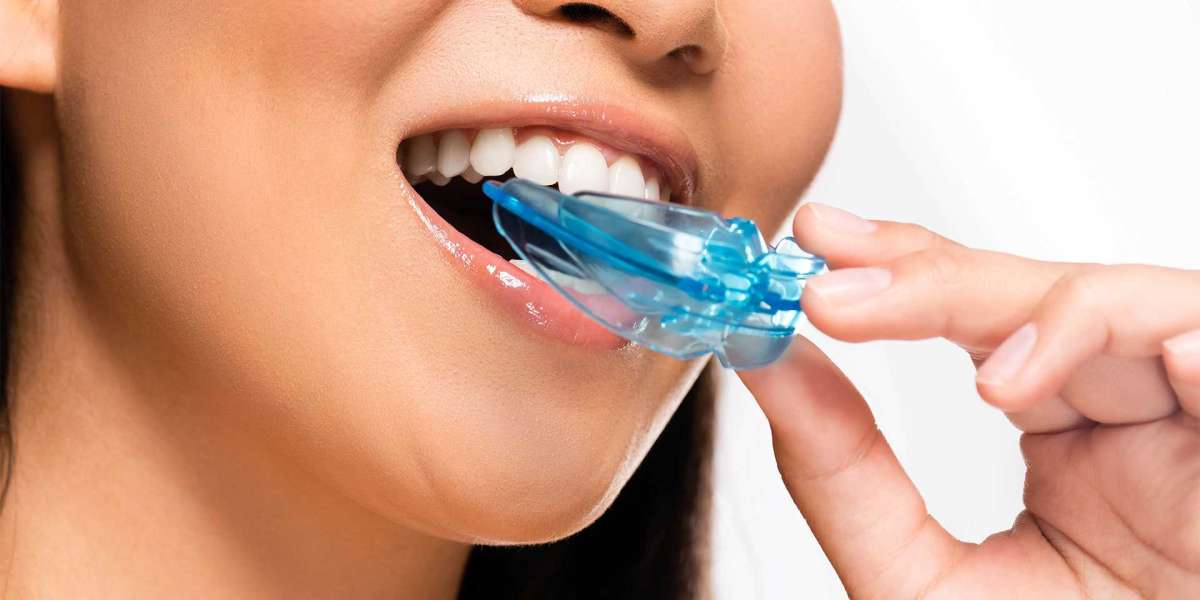Many people suffering from jaw discomfort wonder, can a mouthguard help with TMJ pain? TMJ, or temporomandibular joint disorder, affects the joints that connect your jaw to your skull, often causing pain, clicking, or limited movement. A properly fitted Mouthguards can significantly reduce these symptoms by aligning the jaw, easing pressure, and preventing teeth grinding that worsens the condition. Choosing the right mouthguard is key to effective relief.
Understanding TMJ Pain and Its Causes:
TMJ pain can stem from various physical or behavioral factors that affect your jaw’s alignment and function.
Chronic teeth grinding or jaw clenching (bruxism)
Misaligned bite or jaw structure
Jaw injuries or arthritis
Stress-related tension and muscle tightness
Poor posture affecting neck and jaw alignment
Overuse of jaw muscles from excessive gum chewing or talking
Recognizing these triggers helps in treating and managing TMJ symptoms.
How a Mouthguard Works for TMJ?
A mouthguard helps by reducing stress on the jaw and preventing damaging movements during sleep.
Creates a barrier to prevent teeth grinding and clenching
Helps align the jaw in a more relaxed position
Distributes bite force evenly across the teeth
Minimizes tension in jaw muscles and joints
Can reduce inflammation and pain caused by overuse
Supports long-term jaw joint health when used regularly
A properly fitted guard acts like a cushion for your jaw throughout the night.
Types of Mouthguards for TMJ Relief:
Not all mouthguards are equal when it comes to TMJ management.
Custom-fitted guards: Made by dentists, these offer precise fit and best support for TMJ alignment
Boil-and-bite mouthguards: Molded at home, more affordable but may lack tailored fit
Soft night guards: Comfortable but less durable; suitable for mild symptoms
Hard or dual-laminate guards: Best for moderate to severe TMJ cases requiring structural support
Over-the-counter guards: One-size options; least effective and may worsen TMJ if poorly fitted
Consulting a dental professional helps determine the most suitable type for your condition.
Tips for Using a Mouthguard for TMJ Pain:
To get the most out of your mouthguard, it’s important to use and maintain it properly.
Wear the mouthguard nightly as recommended by your dentist
Clean it daily with mild soap or a special cleaning tablet
Store it in a ventilated case to prevent bacteria growth
Avoid chewing on the guard to prevent damage
Check for wear or changes in fit and replace if necessary
Inform your dentist about persistent or worsening symptoms
Consistency and care can maximize the mouthguard’s effectiveness in reducing TMJ pain.
Benefits of Treating TMJ Pain with a Mouthguard:
Using a Best Mouthguards Treatment offers multiple short- and long-term benefits for TMJ sufferers.
Reduces daily jaw pain and tension
Prevents damage to teeth from clenching and grinding
Improves quality of sleep and reduces nighttime discomfort
Can alleviate related symptoms like headaches and earaches
Supports jaw joint function and reduces risk of complications
Non-invasive treatment option compared to surgery or injections
For many patients, a mouthguard becomes a vital tool in managing TMJ pain effectively.











